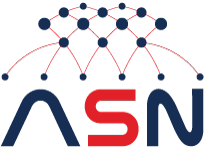Since 2011, IASA has been granting a special award to the author of an outstanding paper presented at an IASA World Congress to honor the memory of Professor Emory Elliott (1942-2009) in recognition of his contribution to American Studies. Professor Elliott supported an international outlook in American Studies, encouraging young scholars and professionals both in North America and in other countries around the world to carry out research in this spirit. One of the IASA’s founders, he served on its Executive Council for numerous years.
As in the past, the award will be granted to the author of an outstanding paper submitted to the IASA Congress. It will carry a special citation and an honorarium to help partially meet the travel expenses to the IASA event in question. The award recipient will present their paper at a special session of the Congress. The award-winning paper and up to two other highly commended papers from the competition will be published in RIAS: The Review of International American Studies, IASA’s refereed journal.
Eligibility
Keeping in view how Prof. Elliott went out of his way to encourage young scholars and faculty in the early and middle stages of their career, the eligibility for the award is restricted to junior or mid-level professionals (within 10 years of obtaining their terminal degree) regardless of nationality, academic affiliation, or discipline.
Selection process
- A panel of judges will be appointed by the IASA Executive Committee to evaluate papers. The decision of the judges will be final.
- The Award winner will be announced prior to the conference.
- IASA officers, executive members, and officially designated conference organizers are not eligible to compete.
Application Procedure
- To apply for prize consideration, send your name, contact information, abstract, and date and place of your terminal degree to: ja***********@gm***.com with a copy to bi***********@gm***.com by July 1st, 2023. (It is strongly recommended that, to make sure that you will be on the congress programme, you also submit your abstract in the conference system as a usual paper submission – https://iasa-world.org/11th-iasa-world-congress-2023). The Prize committee will review all abstracts and will, by July 15th, request those which are highest ranked by them to then submit a full paper for consideration. If you are not contacted by July 15th, you may assume that your submission is no longer under consideration for the prize. All competitors must be members of IASA by the time of the Congress if not before.
- The assessment of the award will take into consideration the abstract as well as the written paper, paying special attention to its subject, structure and content. Papers can be written in any of the four official languages of IASA congresses: English, Spanish, French, and Portuguese.
- The length of the final paper submitted should be 3,000 – 3,500 words. It should be sent along with a short CV (no more than 2 pages) and a statement from the candidate guaranteeing that it is their own original unpublished paper. Due date for those materials, (to be submitted only if requested to by the prize committee) will be July 31st, 2023. Send those materials to ja***********@gm***.com with a copy to bi***********@gm***.com.
- The prize committee will then evaluate the full papers under its review and rank them, choosing one winner and, if they wish, suggesting that up to two additional papers be recognized as noteworthy and recommending that they be published in an IASA venue as noted above. The winner will be notified by the prize committee by August 15th, 2023.
The monetary part of the award will vary from year to year depending on finances, but it is expected that it will be in the range of the equivalent of at least 300 Euros. It will be the responsibility of the prize candidates to follow all of the stipulations above. The decision of the judges is final.
Award winners
2023 Winner
Sara Villamarín-Freire, “A Transmodern Travelogue?: The Case of Teju Cole’s Every Day Is for the Thief.” To be published in the Review of International American Studies.
(2021) 2022 Winner
Giacomo Traina, “Perverse Theaters and Refracted Histories: Violence and (Anti)realism in Viet Thanh Nguyen’s The Sympathizer.” Review of International American Studies, vol. 16, no. 2, 2023, pp. 141-158.
https://doi.org/10.31261/rias.15649 (https://www.journals.us.edu.pl/index.php/RIAS/article/view/15649/12955)
2019 Winner
J.D. Schnepf, “Collaborative Futures: Arts Funding and Speculative Fictions.” Review of International American Studies, vol. 13, no. 2, 2021, pp. 145-157.
https://doi.org/10.31261/rias.9995 (https://www.journals.us.edu.pl/index.php/RIAS/article/view/9995/8848)
2017 Ex Eequo Winners
Alice Balestrino, “Placing Time, Timing Space. Memory as Border and Line of (Hi)Stories in Richard McGuire’s Graphic Narrative Here.” Review of International American Studies, vol. 11, no. 2, 2018, pp. 67-79.
(https://www.journals.us.edu.pl/index.php/RIAS/article/view/7231/5694)
Chiara Grilli, “The Canvas and the Maze: Deconstructing Wall and Frontier in Contemporary American Science Fiction.” Review of International American Studies, vol. 11, no. 2, 2018, pp. 81-94.
(https://www.journals.us.edu.pl/index.php/RIAS/article/view/7230/5696)
2015 Winner
Lin Chien-Ting, “Re-signifying ‘Asia’ in the Transnational Turn of Asian/American Studies.” Review of International American Studies, vol. 9, no. 2, 2016, pp. 27-44.
(https://www.journals.us.edu.pl/index.php/RIAS/article/view/4975/3313)
2013 Winner
Regina Schober, “The World Wide Sea: Concepts of Knowledge and Transnational America in the Information Age.” Review of International American Studies, vol. 7, no. 1, 2014, pp. 10-34.
(https://www.journals.us.edu.pl/index.php/RIAS/article/view/3985/3163)
2011 Winner
Hedyeh Nasseri, “Space as a New Frontier. The US Approach Toward Space Activities from Eisenhower to Obama (Cooperative or Competitive Approach).” Review of International American Studies, vol. 6, no. 1-2, 2013, pp. 49-66.
(https://www.journals.us.edu.pl/index.php/RIAS/article/view/1629/1349)
For more information about the Emory Elliott Award, click here.
